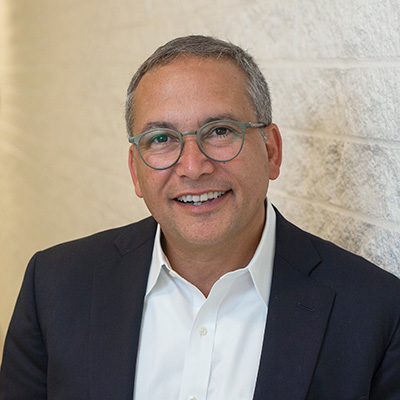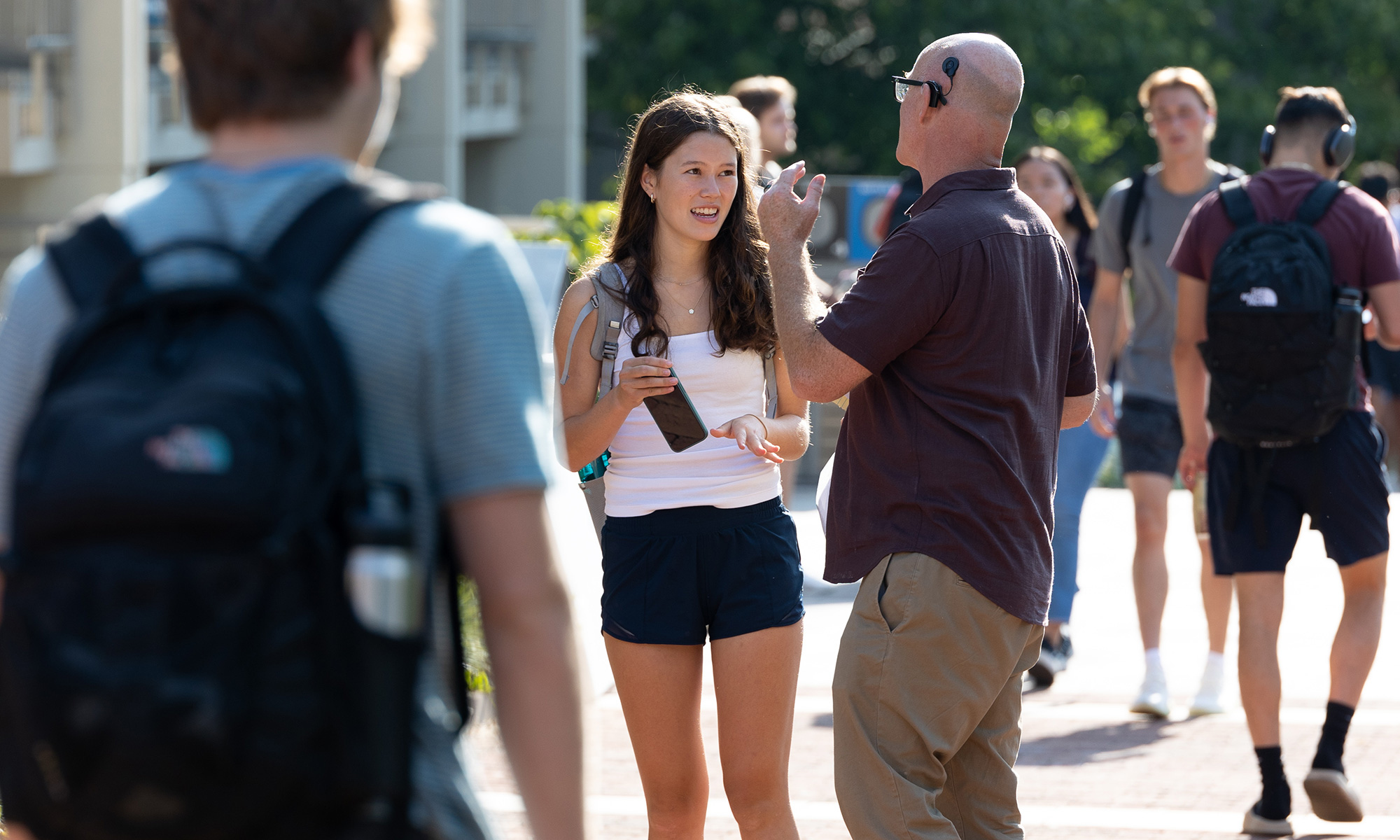Dear Denison Class of 2026:
I am excited to welcome you to Denison University. As you get ready to start college, I want to offer some advice about how to take advantage of your Denison experience.
First and foremost, you are getting ready to receive a kind of education—a residential liberal arts education— that every person deserves but very few people have the opportunity to receive. I am excited for you.
To best take advantage of the opportunities Denison will give you, I want to encourage you to make the following your priorities:
- Make your academic courses the centerpiece of your Denison experience. Do the work. Show up and be engaged in classes. Find meaning and joy in the books you read, the papers you write, the discussions you have in class, the conversations with faculty in and outside of the classroom, etc. At Denison, our classes are small and everybody is expected to be engaged. The liberal arts is also designed to expose you to a wide range of views and perspectives, so take a wide range of classes in the humanities, social sciences, arts, natural sciences, and interdisciplinary programs. Be open to new ideas, especially those you disagree with. And lastly, seek out and connect with faculty who will challenge you. Our faculty care about our students and want to unlock your intellectual potential by provoking, inspiring, and challenging you. The academic experience at Denison isn’t easy. Our faculty will ask a lot from you, and you are capable of handling it. There will be moments when it seems like a lot, but remember it is all purposeful and powerful.
- Get involved in co-curricular activities – but in the right kinds of ways. Denison students are doers, and much learning comes from co-curricular involvement. I love our students’ commitment to campus life. But, some students overcommit and then get overextended. Remember, the learning and fun come from doing things at a high level of quality, whether it’s winning athletic games, putting on artistic performances, or improving campus. Also save some time to take advantage of the intellectual and cultural life of the college. Go to lectures. Attend Lisska Center events, Vail Concerts, and academic department events. Make it a habit to go to artistic performances at the Michael D. Eisner Center for the Performing Arts and to openings in the Bryant Arts Center and Denison Museum. Lastly (and maybe most importantly), as you decide how to spend your time, participate in co-curriculars that you already enjoy, and open yourself up to exploring new interests and developing new passions.
- Develop a wide set of friendships, especially with people who are different from you. Friendships run deep at Denison. Typically, students start by developing friendships with people who have similar life experiences, but that should be the starting point, not the end goal. You will get the most from your Denison experience when you seek out and form friendships with people who have a different set of life experiences and world views from you. One of Denison’s great strengths is the diversity of our community. In particular, students come to campus from every part of the United States and over 40 countries. Students have a wide range of political views, religious practices, and life experiences. You will get the most from your Denison experience if you proactively seek out those peers in residential halls, classrooms, and other campus venues who see and live in the world differently than you. The wider your network of friends, the more you will learn from your peers.
And of course, as you do these things:
- Learn to Fail Forward. Everything is not going to go well all of the time. When things don’t go well, avoid the temptation of believing that everybody else is succeeding at every aspect of their life while you are not. It’s not true! College is about growing as a person. This happens as you challenge yourself at a high level and in new ways. Failing is a normal, healthy, and positive part of doing this well. When things don’t go well, seek out faculty and staff who can help you learn from the experience. And most of all, try again.
- Develop good life habits. Life is often hard. Ambiguity, challenge, and change will be constants across your life. Liberal arts colleges are uniquely suited to helping students develop the life habits and the emotional agility to manage whatever life throws at you. This year, we are opening the Ann and Thomas Hoaglin Wellness Center, which will run a lot of programs on everything from mindfulness and wellness programs to cooking and exercise classes. We are also going to run more outdoor programs. Take advantage of them.
- Have your mind wide open. Make sure you read Denison’s Statement on Freedom of Expression and Academic Freedom, which was passed by the faculty in 2016. A liberal arts education is rooted in intellectual inquiry. We are a place where people are expected to ask questions and challenge orthodoxy of all kinds, especially our own. We expect students to engage in and play with ideas through intellectual inquiry and debate. You are living on a campus and studying with faculty, staff, and peers who have a wide range of intellectual and political views. That is a strength of the college. Have your mind open. Develop the intellectual humility to be open to the idea that you might be wrong (or at least not fully right) about your view, and hence it’s important to seek out alternative views and to allow your ideas to be challenged as a way to enhance your understanding. Being intellectually uncomfortable is an important part of a liberal arts education.
A Closing Reflection: The power of a Denison education is developing the ability and interest to be the architect of your life and to be the kind of creative, forward-looking problem solvers the world needs. The true power of a Denison education happens when students arrive highly motivated to take advantage of the academics; to be engaged on campus; and to surround themselves by peers, faculty, and staff who challenge them in different ways.
Denison can be hard. As students, you are often balancing challenging classes, time consuming co-curriculars, and myriad relationships with peers. While there are lots of fun moments, much of the self-discovery, personal growth, and learning comes as a result of the stuff that does not go as planned – especially the missteps, struggles, and failures. Embrace those moments.
Lastly, liberal arts colleges purposefully strike a balance between the individual and community. We want to provide students with the skills, values, habits, networks, and experiences to succeed in life. And we seek to instill within students a sense that we all should strive to do this in ways that contribute beyond ourselves. If we do this well, students leave Denison with a wide range of intellectual and political views, a commitment to being engaged citizens, and the ability to be the architect of their lives.
I am excited to see you on campus!
Sincerely,
Adam S. Weinberg
President, Denison University

